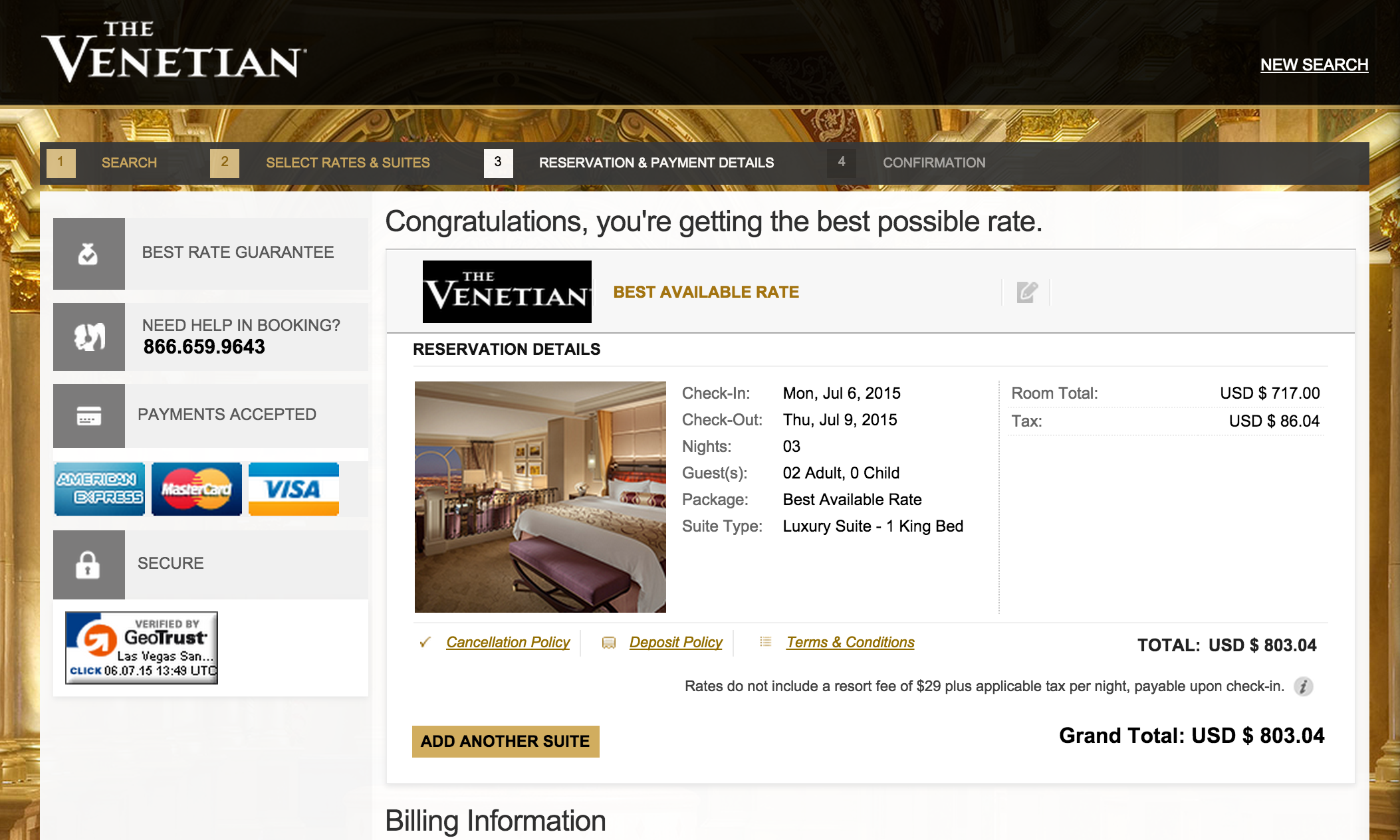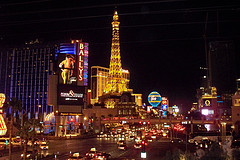Travelers don’t necessarily expect to see resort fees, or extra expenses added to their bills for things that other hotels include in the bill, when staying at a hotel. It turns out, however, that this is an increasingly common practice. It lets hotels advertise lower rates and impose fees when guests get there. [More]
resort fees

Hotels Harm Consumers By Not Including ‘Resort Fees’ In Room Rates
Staying in a hotel comes at a price — there’s the room rate, service charges, taxes, and hotels are increasingly taking on “resort fees” to cover amenities like internet access, parking, gym, spa, and pool — even if you never use them. These fees, which can significantly increase the total cost of a room, are almost never included in the advertised price and are often minimized or omitted until it comes time to actually book your stay.
[More]

White House: Hidden Fees “Threaten The Competitive Process”
It seems like an increasing number of things you buy now come with fees that you don’t find out about until it’s time to make the purchase: Book a hotel room — there’s a “Resort Fee” that wasn’t in the advertised price. Going to a concert — there’s a “Convenience Fee” that can sometimes double the ticket price. Subscribe to cable TV — there are “Broadcast TV” fees for stations that are freely available over the air, and “Regional Sports” fees for stations that are often owned by the cable company. A new report from the White House says these hidden fees are cause for a broader concern about a lack of competition. [More]

Federal Advisory Panel Recommends Clearer Disclosure Of Airline, Hotel Resort Fees
It’s no secret that airlines have increased their fees and shrunk the size of their seats over the years in an attempt to maximize revenue. While those extra costs and seat sizes are generally available through the carrier’s website, a federal panel thinks that information would better serve passengers if it were readily available during the ticket purchasing process. [More]

Don’t Expect An End To Sketchy Hotel Resort Fees Anytime Soon
In 2012, it looked like the Federal Trade Commission might finally be cracking down on hotel “resort fees,” mandatory surcharges added above the listed price of some hotel rooms. At the time, the agency sent warnings to 22 different hotel operators warning them that they weren’t doing enough to disclose these fees, but no legal actions have been taken since, in spite of the fact that some popular tourist destinations are hiding their resort fees until the final payment screen. And judging by the FTC’s latest response to these concerns, you probably shouldn’t expect this to change in the near future. [More]

Should Hotels Be Required To Include Mandatory “Resort Fees” In Published Room Rates?
In order to minimize surprise when it comes time to pay, airlines in the U.S. now need to include all mandatory fees in their published airfares, but the same isn’t true for hotels. Many destinations now tack on so-called “resort fees” that claim to cover things like access to in-hotel gyms and pools, but which are mandatory for all guests whether you use those amenities or not. Even though these required add-on charges can significantly increase a guest’s total bill, hotels do not have to include the fee in their listed rates. [More]

FTC Warns Hotels That Hiding Resort Fees May Violate The Law
Have you ever booked a hotel room and then arrived to find that in addition to the room rate, you must also pay a “resort fee,” even if you have no intention of using the amenities the fee is intended to cover? The Federal Trade Commission thinks some hotel operators may be illegally hiding these fees in order to mislead consumers about their room rates. [More]

Harrah's Las Vegas Resorts Say No To Resort Fees
If you don’t like the idea of paying a resort fee the next time you visit Las Vegas, make sure you check out the various Harrah’s Entertainment resorts. Today they sent a press release to travel blogger and temporary TSA aggravator Chris Elliott in which they state that all of their Vegas resorts “exclude mandatory resort fees.” [More]


